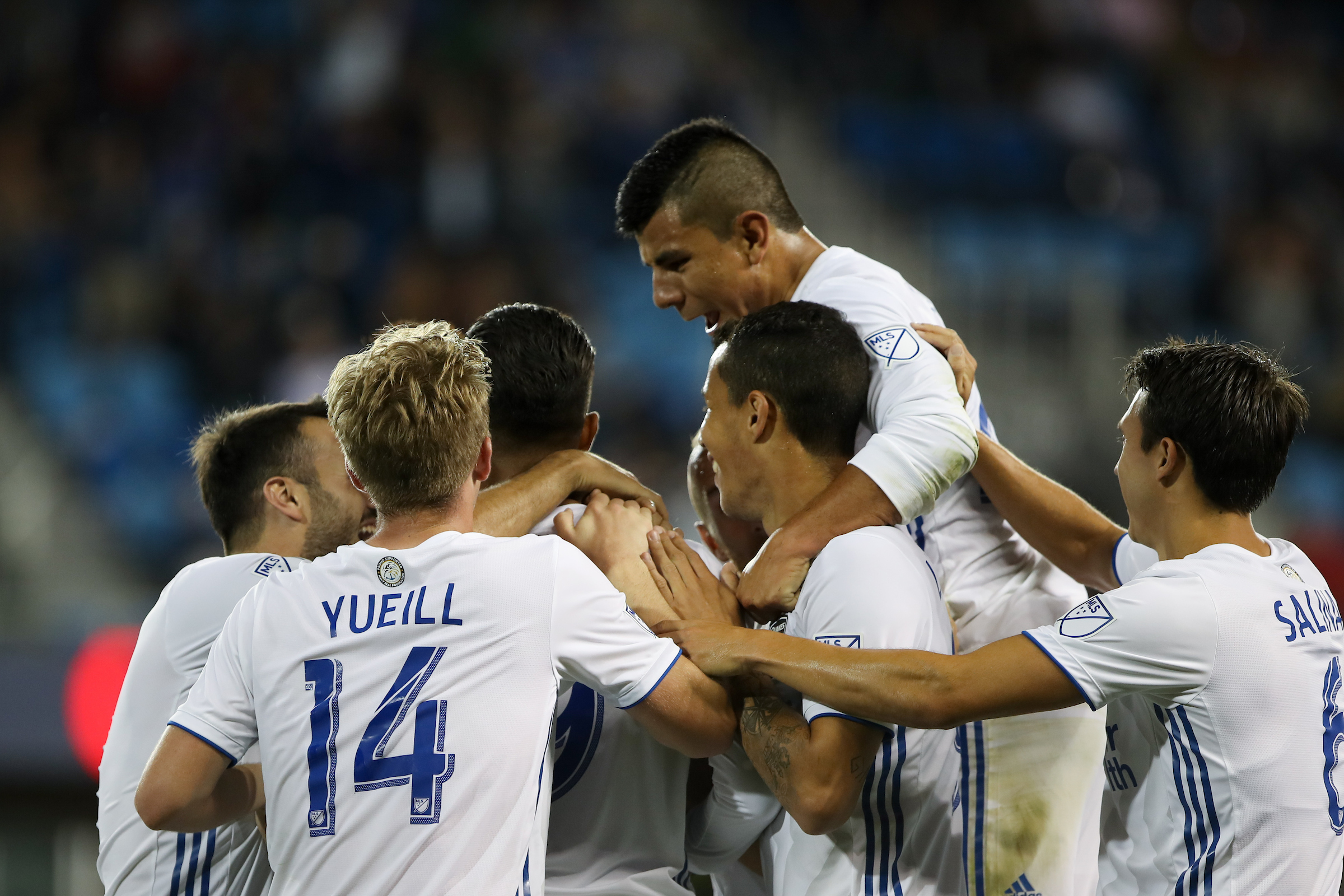
PHOTO: ISI Photos
SAN JOSE, Calif. — For major part of the 96 minutes played at Avaya Stadium on Wednesday night, Steve Ralston stood tall as he strode the broken lines surrounding his box, arms on top of one another resting against his chest. In the time he didn’t find himself in the aforementioned position, he would take a seat and chat with his assistant, Alex Covelo, flagging down his players and pointing to areas of the pitch he wanted them in.
In front of an announced 15,948, the San Jose Earthquakes were hosting league-leaders Atlanta United for the first-time ever. It was also Ralston’s coaching debut, daunting as it was forecasted to be against Tata Martino’s side, took a turn in his favor early on in the 13th minute, as Nick Lima headed home a cross from Shea Salinas.
That was only the start.
Despite at times being pinned inside their own box due to Atlanta’s attack, the Quakes continued to possess control the game for portions of the first half, keeping possession and touching the ball effectively from wing to wing, evading the Five Stripes counter-pressing. JT Marcinkowski, who was debuting for the Black-and-Blue, showcased veteran-like shot-stopping abilities, composure and distribution.
The Quakes posed as functioning team, which in large part can be due to the new-found energy that was absent under Mikael Stahre. As the players worked for every ball, the stands responded with cheers and claps. Avaya was again cheerful and festive, and so were the home side’s players as they celebrated Vako’s brilliant individual effort in conjunction.
“I thought our guys stood toe-to-toe with them for most of this game tonight,” Ralston said. “We showed that we can play with the best teams, and we just have to be able to do it consistently.”
Ralston’s men, who passively evaporated leads under Stahre, continued to play with the same vitalizing freedom in the second half. Atlanta, however, didn’t cement themselves as Supporter’s Shield front-runners overnight, and as the night progressed, one can sense that 90 minutes was too much time for them to get back into the mix.
With Josef Martinez, Hector Villalba and Miguel Almiron leading the attack, Atlanta created goal-scoring opportunity after goal-scoring opportunity. Yet it wouldn’t completely be the league leader’s lucrative attack that would change the course of the match, but one of the most peculiar officiating sequences in the VAR-era.
As the Quakes finished celebrating the eternal captain’s 143rd goal, referee Fotis Bazakos jogged across the field, heading directly to VAR’s monitor. In a matter of minutes, VAR annulled Wondolowski’s goal and subsequently granted Martinez a penalty, which was calmly put into the back of the net.
“Absolutely, it changes the game,” Atlanta’s Michael Parkhurst said. “4-1 to 3-2 right away, it gives us momentum. As soon as it goes in, we felt we could get at least a point out of this game.”
As questionable as it might have been, the comeback magic that was so common for the Quakes at Avaya had switched places. When the final whistle blew, the Five Stripes turned to salute their traveling supporters. As for San Jose fans? They continued to boo profoundly, not at their last-place team’s performance, but at the officiating crew. Despite the odd, 4-3 loss, Avaya responded justly to the animated soccer the Quakes played.
In the midst of heavy criticism and a transition at the helm, San Jose invested in the reason of their existence: Playing enjoyable soccer with a purpose to win. Sure, the Ralston-era could be short in San Jose, but there’s no denying it’s off to a revitalizing start.
“It was great up until the last minute, obviously,” Ralston said. “When we scored that phantom fourth goal, it was electric and it hasn’t been that way in a while. I wish at the end of the game we could have had the same feeling.”
“Unfortunately, that’s the way it goes; that’s the way our season has been this year,” he added. “But I thought the fans were really into it, and I think it’s because of the effort those guys put in today.”




